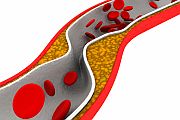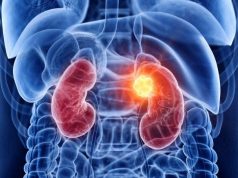Use of medical therapy appears safer for narrowed brain arteries, researchers say
TUESDAY, March 24, 2015 (HealthDay News) — Using stents rather than medication alone to keep narrowed arteries open in the brain may actually increase patients’ risk of stroke, according to the results of a new trial. The report was published in the March 24/31 issue of the Journal of the American Medical Association.
The study involved 112 patients at risk due to intracranial arterial stenosis. Those who received balloon-expandable stents were more than twice as likely to suffer a stroke or transient ischemic attack as patients treated with clopidogrel and aspirin. Moreover, in the month after the procedure, 8.6 percent of the stent patients suffered from bleeding in the brain and about 5 percent died, versus none of those who were treated with drugs.
“The current technology with balloon-mounted stent is very limited and is not recommended for patients with stroke or ministroke secondary to a narrowed brain artery,” lead researcher Osama Zaidat, M.D., an associate professor of neurology at the Medical College of Wisconsin in Milwaukee, told HealthDay. “For those people with symptomatic intracranial stenosis, medical therapy is the treatment of choice,” he added.
In an interview with HealthDay, Colin Derdeyn, M.D., professor of radiology at the Washington University School of Medicine in St. Louis, recommended using aspirin and clopidogrel for these patients plus cholesterol-lowering statins, treating high blood pressure, not smoking, and increasing physical activity. That’s “the way to go for patients with a recent stroke or ministroke and a blockage of a brain artery, as appealing as it is to want to go in and open the blockage,” Derdeyn said. Derdeyn is also the coauthor of an accompanying journal editorial.
The trial was funded by Micrus Endovascular, maker of the Vitesse intracranial stent.
Abstract
Full Text (subscription or payment may be required)
Editorial (subscription or payment may be required)
Copyright © 2015 HealthDay. All rights reserved.








